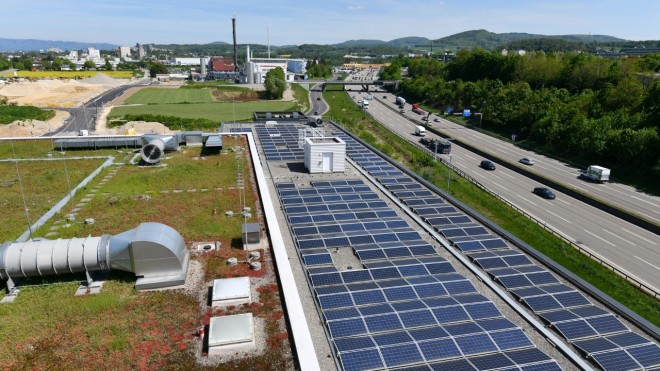
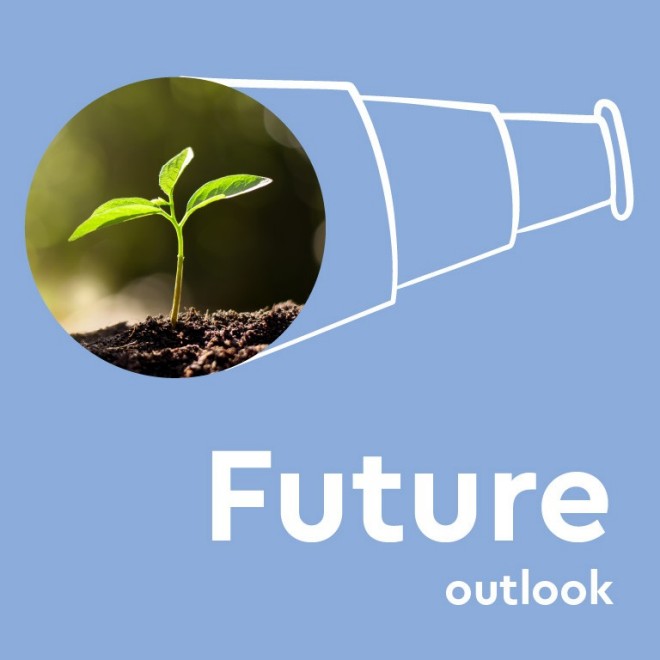
One thing is for certain: HALBA’s commitment to sustainability has been pioneering from its very inception, and it will continue to grow and improve.
«There’s no strawberries in my household at Christmas», Andreas Hasler comments. «I buy seasonal, organic products from Coop or from my neighbourhood organic farm whenever I can». Andreas Hasler has been the CEO of HALBA since 2019.
«Thanks to a community permaculture garden right on my doorstep, I have organic vegetables all year round», says Petra Heid. Petra Heid has been the Head of Sustainability at HALBA since 2015. To her, sustainability is more than a professional interest. Her culinary garden on Lake Constance ensures her seasonal self-sufficiency and protects biodiversity.
Different functions, a common vision: Andreas Hasler and Petra Heid both seek to expand HALBA’s position as Switzerland’s most sustainable producer of Swiss chocolate and snacks. They aim to use organic raw materials wherever possible. An ambitious goal.
Andreas Hasler: «A company can never be sustainable enough. We want to get better constantly. HALBA is already viewed as a pioneer of sustainability. Working sustainably is part of our mission and our DNA. We want and will expand and strengthen this position further over the coming years».
Petra Heid: «A pioneer is someone who is groundbreaking in a certain area. HALBA has been such a groundbreaker for more than a decade: our sustainability projects are, indeed, pioneering. Take the closed-loop economy of our cocoa husks as an innovative example: we sell 100 per cent of our cocoa husks to various channels for upcycling. In the past, they went in the bin. In our era of climate change, rapid loss of global biodiversity and resource shortages, we are keenly aware of our responsibility. Our agroforestry projects embody this awareness».
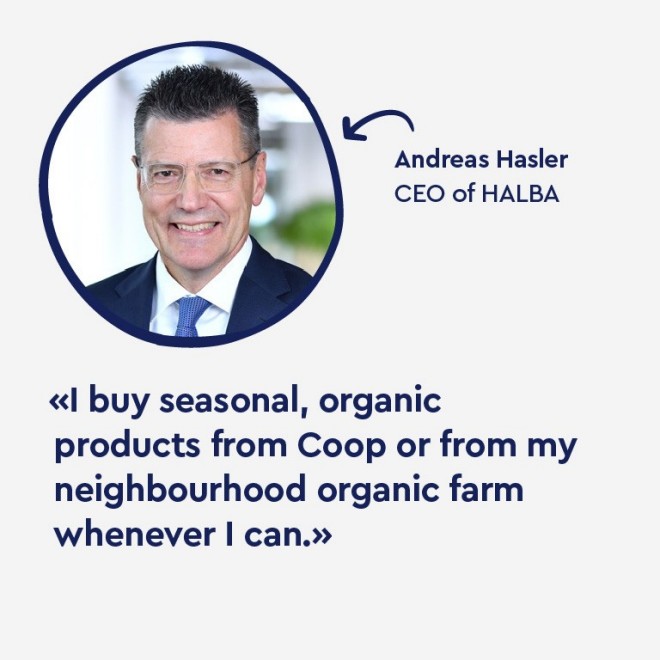
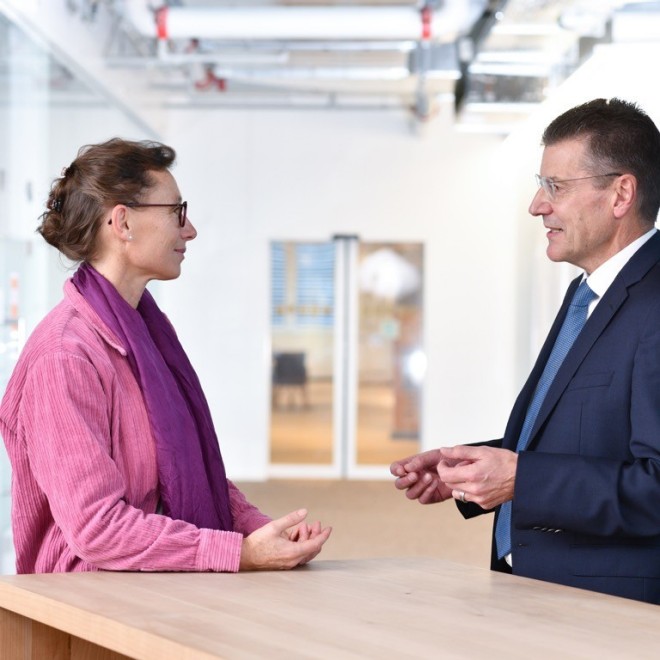
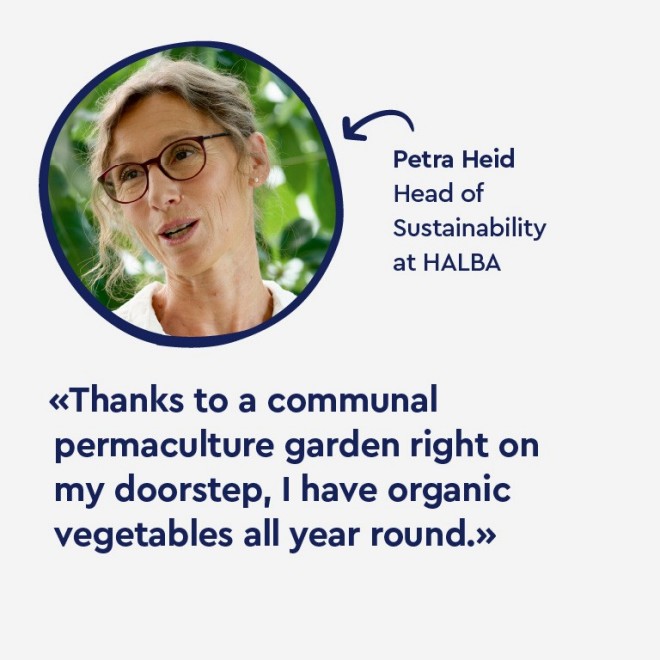
Andreas Hasler: «By applying our agroforestry system consistently in the source regions, HALBA has set a standard. I am not aware of another chocolate producer that has invested nearly as much money and manpower into the source regions to help solve problems exactly where they occur».
Petra Heid: «With our agroforestry projects, we want to make the cultivation of various critical raw materials more sustainable, actively support reforestation and improve and diversify the incomes of our producers. Compliance with at least one sustainability standard will be a mandatory requirement for the procurement of all critical raw materials in future. This allows us to know for certain where and how the raw materials were produced and that social aspects were taken into account. At our production site in Pratteln, we will continue to invest in renewable energies. At the moment, we use 95 per cent. We also plan to reduce the amount of inorganic waste and food waste produced at the Pratteln site over the next five years. Our goal is for 99 per cent of all foodstuffs to reach the sales channels in future».
Andreas Hasler: «Our goals are clearly defined. But we are also well aware of the fact that corporate sustainability takes a lot of time and money – and everyone involved needs to be very tenacious. We also need consumers who embrace the principle of sustainability, take responsibility and buy sustainable products».
Petra Heid: «If we want to achieve sustainability in all areas along our supply and value chain, we must ensure that due diligence in terms of environmental and social aspects is upheld at every stage, from the procurement of our valuable raw materials to their processing in our production facilities down to the sale of the final products. To this end, we have developed various policies that highlight the ways in which we live up to our responsibility. Our position and the measures derived from them are clearly laid down in these policies».
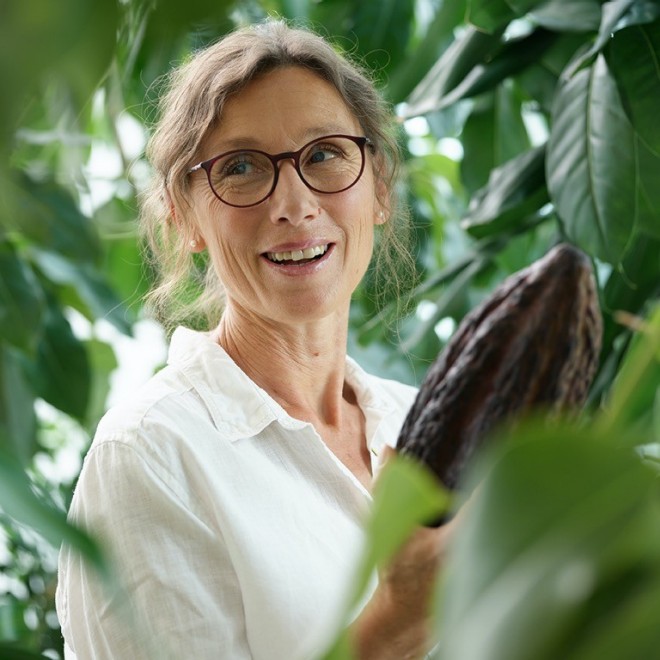
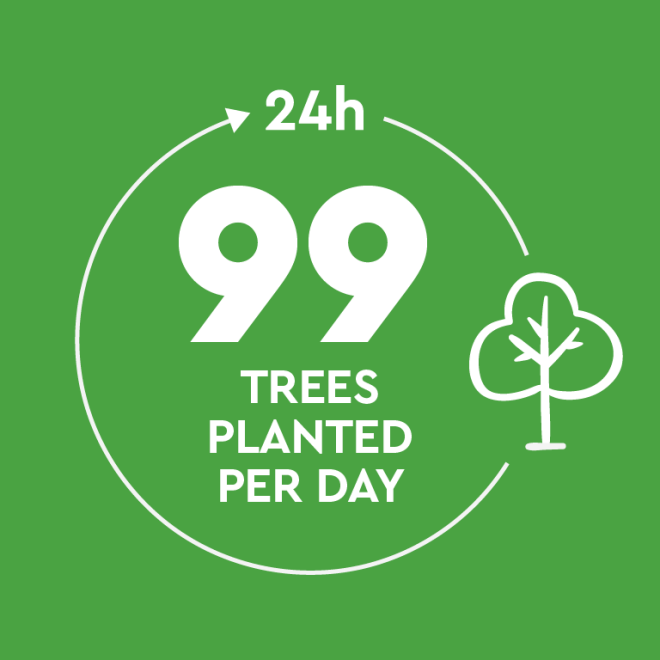
Andreas Hasler: «The policies define the topics that will be at the centre of our efforts over the coming years. They are the foundation of our corporate sustainability 2026+».
Petra Heid: «Everyone talks about sustainability. I would welcome more genuine commitment, though. Often, it stops outside your doorstep. The sustainable, responsible use of food is not free. Every food, every raw material, every resource has a value. We need to learn to appreciate that value again. As a producer of chocolate, snacks and baking and cooking ingredients, HALBA has a responsibility here, and it is well aware of it».
Andreas Hasler: «Our commitment to sustainability is based on the UN Sustainable Development Goals among other sources. They are the umbrella covering all our measures and activities. But our goals are more detailed and more easily measurable. We can prove our progress in the individual areas with facts and figures. It is this progress that keeps us motivated along our way».